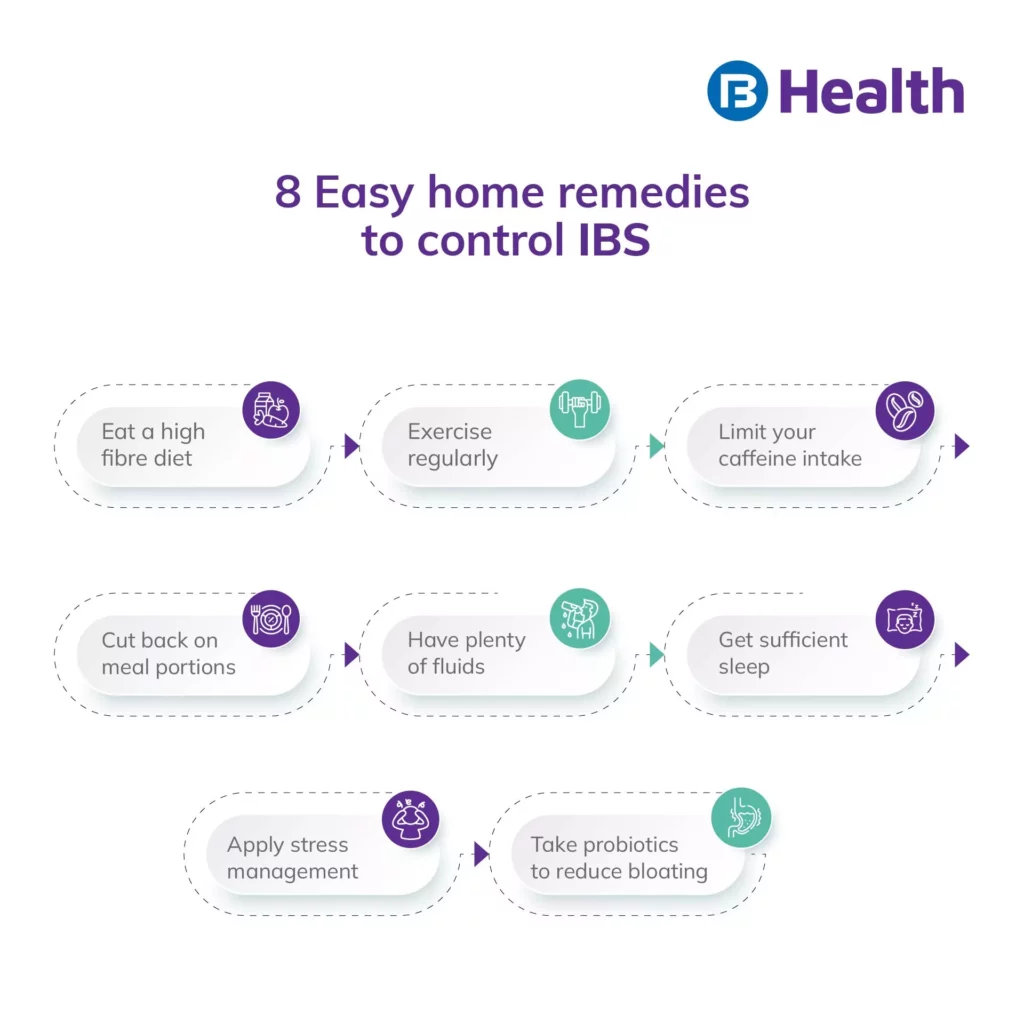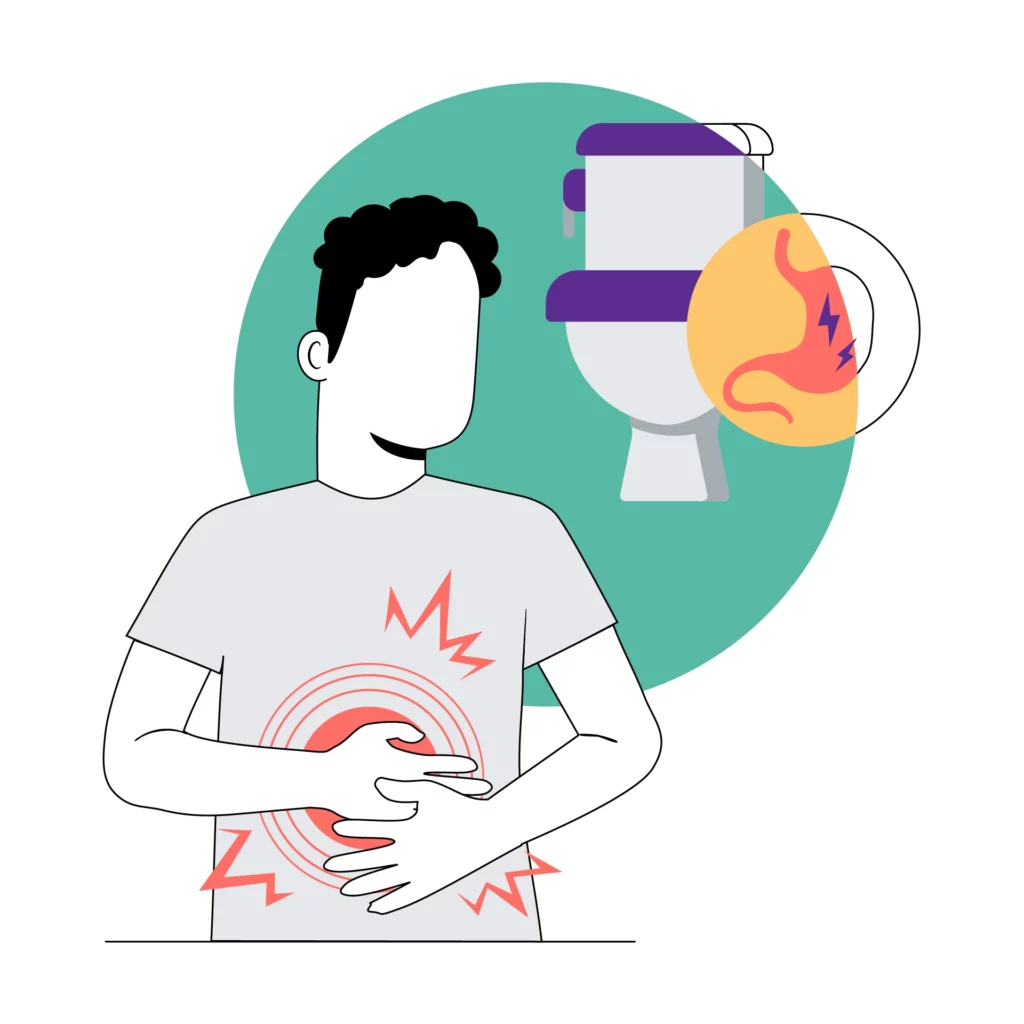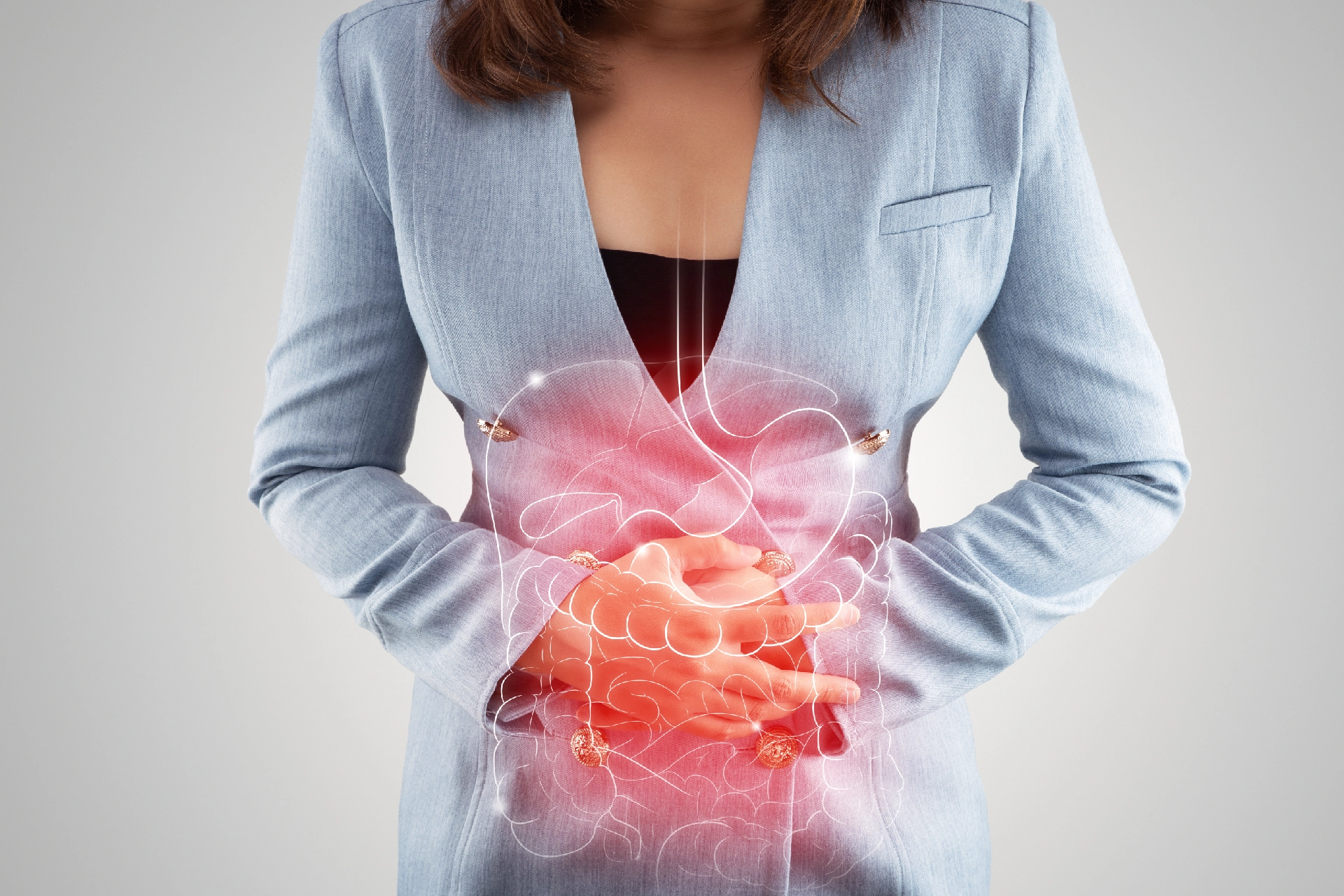General Health | 6 min read
Irritable Bowel Syndrome Symptoms, Types, Treatment, Diet
Medically reviewed by
Table of Content
Synopsis
As we enter April, which is celebrated as IBS Awareness Month, it is important to know all about irritable bowel syndrome to be aware of this condition and raise awareness among others. Find out all you need about this chronic condition.
Key Takeaways
- IBS can affect your quality of life but is not a cause of GI cancers
- This condition is different from inflammatory bowel disease
- IBS cannot be cured, but you can manage them with diet changes and medications
What is IBS?
Irritable bowel syndrome, abbreviated as IBS, is a gut disorder that affects the intestines and the stomach. It may come with symptoms such as diarrhoea, constipation, flatulence and bloating. For most people, symptoms of IBS are not severe and can be managed by controlling diet, stress and lifestyle. However, if that doesn’t help, you may require medication and counselling. Note that irritable bowel syndrome differs from other bowel conditions, such as inflammatory bowel disease, and doesn’t harm your digestive tract.
A 2022 study confirms that Irritable bowel syndrome doesn’t heighten your risk of getting gastrointestinal cancers. [1] However, it can still affect your quality of life as a long-term chronic condition.
Facts About Irritable Bowel Syndrome
Here’s a look at a few common facts and important stats about irritable bowel syndrome:
Usual Causes of IBS:
- Limited mobility of your gastrointestinal (GI) muscles
- Presence of hypersensitive nerves in your GI muscles
- Misinterpretation of brain signals by the GI nerves
- IBS can be triggered by certain foods, medications as well as emotional stress
- As per multiple studies, the prevalence of IBS among Indians varies between 10% and 20% [2]
Following Are the Risk Factors for Irritable Bowel Syndrome [3]:
- Anxiety or depression
- Food poisoning
- Consumption of antibiotics
- Neuroticism - a personality trait which makes one prone to negative emotional arousal
- Being born with a female reproductive system
Symptoms of Irritable Bowel Syndrome
IBS symptoms can vary among individuals, and their intensity also can change over time. In case you have this condition, you may experience the following:
- Cramping and abdominal pain
- Abdominal Bloating
- The frequent urge to defecate
- Diarrhea
- Constipation
- Changes in the appearance of stool
Having episodes of both constipation and diarrhoea is quite common for individuals with IBS. Symptoms such as flatulence and bloating may disappear for some time after a bowel movement, only to come back later. For some people, these symptoms never go away; such people are usually exposed to high stress and unhealthy eating habits.

Types of IBS
IBS types depend on the abnormality you face in bowel movements. Researchers have categorized them into the following three types:
- IBS With Constipation (IBS-C): When the stool is solid and full of lumps
- IBS With Diarrhoea (IBS-D): When the stool is mostly liquid
- IBS With Mixed Bowel Habits (IBS-M): When you experience the above two types of bowel movements within 24 hours
Remember that IBS treatment depends on the type of IBS you have, and specific medications work for specific types of irritable bowel syndrome.
Irritable Bowel Syndrome Diagnosis
Doctors usually diagnose irritable bowel syndrome by observing your symptoms. They may recommend the following steps to rule out other possible causes of your stomach condition:
- Resort to a particular diet or avoid certain foods to ensure you don’t have food allergies
- Get your stool sample examined in a lab to understand whether there is any infection
- Check whether you are anemic or have the celiac disease by getting your blood sample tested
- Go for a CT scan, colonoscopy or upper endoscopy to rule out colitis, inflammatory bowel disease, malabsorption, or cancer
Irritable Bowel Syndrome Treatment
It is important to remember that treatment cannot cure IBS; IBS treatment aims to reduce the intensity of symptoms and improve your quality of life. As the first step of treatment, doctors may recommend the following home remedies:
A High-Fibre Diet
Including high-fibre foods such as pears, avocadoes, bananas, beets, carrots, broccoli and dark chocolate in your meals can help alleviate IBS symptoms
Regular Exercise
Working out every day and performing other physical activities such as walking, jogging, and cycling can help control irritable bowel syndrome
Reduce Caffeine Intake
Excessive intake of caffeine can lead to dehydration, which eventually causes constipation. So it is wise to go for a moderate intake of caffeinated beverages to keep IBS symptoms at bay
Cutting Back On Your Meal Portion
It is wiser to have small and frequent meals rather than going for heavy meals to make sure you are not overeating. Thus, your digestive system gets enough space to metabolize the small chunks of food, and it helps ensure a smoother bowel movement
Drink a Lot of Fluids
It is important to remain hydrated to ensure a healthy movement of the bowel and keep other health conditions such as dehydration, diarrhoea and constipation at bay
Ensuring Sufficient Sleep
Lack of sleep can affect your metabolism, eventually increasing IBS symptoms
Applying Stress Management Methods
If you are suffering from high stress, doctors may recommend certain relaxation techniques to help you control anxiety. It can include deep breathing, yoga poses, massage, meditation, aromatherapy, music and art therapy, and other naturopathy options
Intake of Probiotics
It can help reduce flatulence and bloating
Apart from this, avoid the following types of food:
- Gluten: Barley, wheat and rye
- Foods that increase flatulence: Spicy or deep-fried foods, carbonated beverages, and alcohol
- FODMAPs: Fermentable oligosaccharides, disaccharides, monosaccharides and polyols (FODMAPs) include carbohydrates such as lactose, fructose, fructans and others. They are found in certain vegetables, fruits, dairy products and grains

Recommended Diet For IBS
If you have irritable bowel syndrome, doctors may recommend a low-FODMAP diet. Common FODMAP foods are the following:
- Eggs
- Almond milk
- Meats
- Grains such as rice, oats and quinoa
- Fruits such as berries, pineapples, oranges, apples and grapes
- Vegetables such as tomatoes, potatoes, cucumbers and eggplants
As IBS symptoms are diverse, the dietary requirements of individuals suffering from this condition vary too.
When is IBS Awareness month?
IBS Awareness Month is celebrated in April, and 2023 is no exception. This year, the celebration aims to help others suffering from irritable bowel syndrome, raise awareness, and destigmatise the different types of IBS. World IBS Day 2023 will be observed on April 19, 2023.
If you suspect irritable bowel syndrome or want to know more about the condition, you can book a quick online doctor consultation on Bajaj Finserv Health. Get your doubts resolved in no time and start your journey towards a healthier digestive system and happier life!
FAQs
What are the IBS symptoms for men?
- Cramping and abdominal pain
- Bloating and flatulence
- The frequent urge to defecate
- Diarrhoea
- Constipation
- Changes in the appearance of stool
What are the IBS symptoms for women?
Symptoms of irritable bowel syndrome in women are similar to those of men. However, women may experience a sudden increase in the intensity of symptoms during menstruation. There are also reports of a sudden boost in the intensity of symptoms during pregnancy. Usually, women who have entered menopause have a lesser chance of getting symptoms of irritable bowel movement than women who are menstruating.
References
- https://pubmed.ncbi.nlm.nih.gov/35130187/
- http://www.journaldmims.com/article.asp?issn=0974-3901;year=2018;volume=13;issue=2;spage=87;epage=90;aulast=Nagaonkar
- https://www.gastrojournal.org/article/S0016-5085(17)30008-2/fulltext
Disclaimer
Please note that this article is solely meant for informational purposes and Bajaj Finserv Health Limited (“BFHL”) does not shoulder any responsibility of the views/advice/information expressed/given by the writer/reviewer/originator. This article should not be considered as a substitute for any medical advice, diagnosis or treatment. Always consult with your trusted physician/qualified healthcare professional to evaluate your medical condition. The above article has been reviewed by a qualified doctor and BFHL is not responsible for any damages for any information or services provided by any third party.





